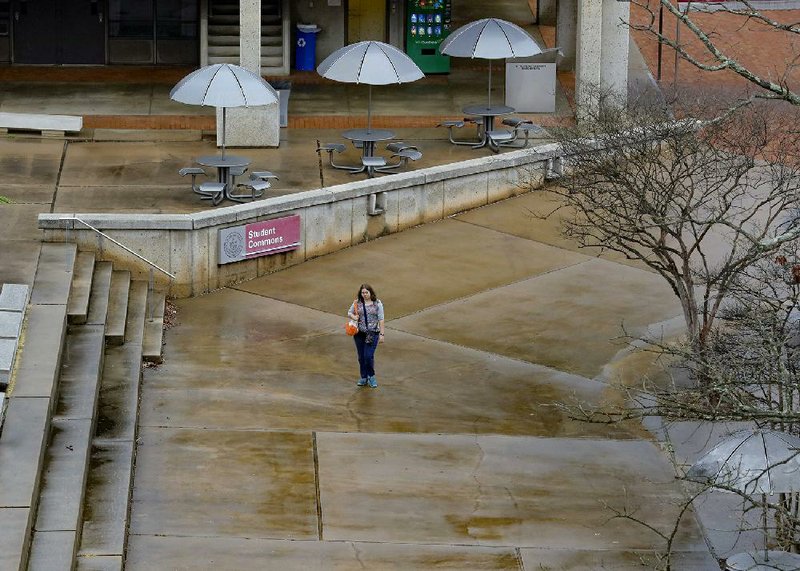The University of Arkansas at Little Rock plans to move forward on a plan to consolidate its five colleges into three, saving about $1 million annually, Chancellor Christina Drale told UA System trustees Thursday.
A university committee -- dubbed the Institutional Effectiveness Committee -- recommended college consolidation to Drale late last year and offered several potential scenarios with different associated cost savings.
It's the latest decision among numerous Drale must make to get the university out of the red. Next week, she'll start looking over two committees' recommendations for adjusting academic programs, which could include elimination or downsizing of them. Those committees' reports are due to Drale today.
Trustees didn't ask any questions of Drale following her presentation Thursday. Board Chairman John Goodson thanked her and her staff for their work.
"Wer're fully committed to righting the ship at UALR," Goodson said. "Anything you need from us, any call meetings, we're at your disposal."
Drale has opted to create three colleges: one hosting a science, technology, engineering and mathematics program; a second hosting most professional programs, such as business, health and human services; and a third hosting liberal arts programs and education.
Many students in the education program take liberal arts courses, Drale said, prompting its inclusion in the liberal arts college instead of the professional programs college.
UALR leaders have sought campus and community feedback on this and numerous other proposals, including potential academic program changes. Community focus groups, including businesses, have been consulted about what they need from the university and what they don't need. Faculty, staff and students have been asked about the university's strengths and weaknesses.
Drale plans to form a draft academic retrenchment plan during spring break and then vet it across campus through April. She'll ask the trustees to approve of the plan in May, possibly before the board's regular May meeting.
"There are some questions about when we would have to notify certain personnel according to our existing board policies of notification," Drale said. So she'll ask for academic retrenchment status "no later than the May meeting."
Trustees are scheduled to meet May 20-21. If approved, changes would begin July 1.
The university has eliminated more than $3 million from its current year budget in two rounds of cuts. Drale said she'll soon announce a third round that will increase the total amount cut for the year to just less than $4 million.
The university faced a $5.6 million deficit going into this year and incurred millions more through a more than 8% drop in enrollment, far more than projected in the budget approved by trustees last year and submitted by former Chancellor Andrew Rogerson. Millions more were found after a UA System audit found years of discrepancies in budget reporting, bringing the total deficit beyond $11 million.
Drale expects more money will be cut as a result of fewer expenses, such as lapsed salaries for people who have left but not been replaced and decreased travel amid the covid-19 outbreak.
"Of course we don't know how much this crisis will affect this year's budget," Drale said.
The college restructuring will go into effect July 1, the beginning of the next fiscal year.
It mostly targets administrative costs by consolidating responsibilities and eliminating duplicate processes surrounding program operations.
"Students and faculty should not be significantly impacted; however, relationships between departments and academic support units would be affected," the Institutional Effectiveness Committee's December report reads. "This scenario will affect all dean's offices, chairs and academic administrative professionals. Academic offices (faculty and chairs) will have more time to devote to teaching, research and mentoring students instead of administrative duties."
Metro on 03/20/2020

